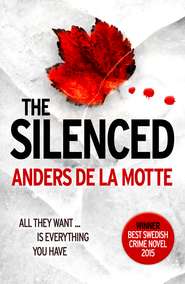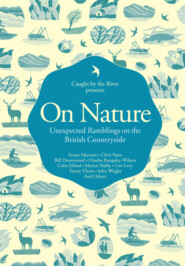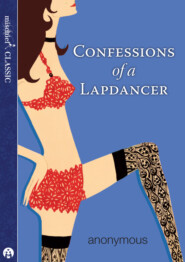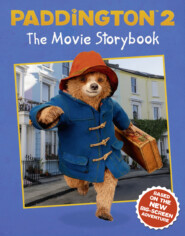По всем вопросам обращайтесь на: info@litportal.ru
(©) 2003-2025.
✖
Empire Girls
Настройки чтения
Размер шрифта
Высота строк
Поля
“Do you have a name?” he asked my sister.
“Ivy,” she said. “I’m Ivy and this is my sister...”
Jimmy cut her off. “Ivy, huh? You don’t look like something stuck to the side of a house. I’ll have to come up with another name that’ll suit ya better.”
As if he’d see her again. Not to mention he hadn’t wanted to know my name, which is when I realized that if anyone could become invisible in a city full of people, it would be me. That thought brought me back around to thinking about Asher. If it was true, and we were similar people, then perhaps he was invisible, too. I shivered at that thought. It would be too hard to find someone who could not be seen.
Ivy, however, didn’t seem to notice Jimmy’s dismissal of my presence. Or if she did, she didn’t care. He sat behind the wheel again, and Ivy scooted up to sit with her arms crossed on the back of the front seat. I could see their exchanges in the rearview mirror.
“So, Jimmy...which way are we headed? Uptown, downtown? Where is this Empire House?”
“Where do you want it to be?” he asked.
“I don’t care if it’s smack in the middle of the East River. I’ve been waiting for this moment for my entire life,” said Ivy.
The truth that I felt in her statement hurt me. I always knew she wanted more from life...but could she have been that unhappy in Forest Grove? And for how long?
She leaned back her head and winked at me. And before I could stop myself, I reached out and tugged hard at the fine edges of her bob that just grazed her exposed back. It pulled her neck in an unnatural direction and she snapped her head away from me yelling “Ow!”
“You all right?” asked Jimmy, even though he was glaring at me in that infernal rearview mirror.
His blue eyes met mine, only I decided to give him my best glare, and it made him turn away.
“Yes, I’m fine,” answered Ivy. “My hair got caught on my sister’s broach. Who even wears high necks anymore?” They were laughing at me, but I knew Ivy was hurt because she kept rubbing the back of her neck. Good, I thought. My shoulders won’t be the same after that trip through the station with our trunks....
“So, you never answered me. Where is this place? Uptown, downtown?” she asked.
“The best part of town. Only the best for you, uh...two. It’s in The Village, right off MacDougal.”
That did it. I put my head into my white-gloved hands, already gray with the filth of the city, and I cried.
CHAPTER 4
Ivy
NEW YORKERS MOVED so quickly. Pitched forward, chins leading the way, they dashed to and from destinations I could only dream about. The whole city was like a wild horse chomping at the bit—as if the island of Manhattan would soon tear itself away from the surrounding land and bolt for the wide-open sea of the future.
Jimmy, a broad-chested, raven-haired Irishman, was proving a prince of the city streets. He maneuvered the large vehicle with casual ease, pointing out restaurants and museums, secret taverns and notorious alleyways, in a voice that dipped and rose with the lilting song of the Emerald Isle. Rose disapproved—her grumblings buzzed around us like flies we casually swatted out the window. I knew what she was thinking. So new off the boat his cuffs are still damp, but even if it was true, Jimmy knew Manhattan as well as any travel guide. He also smelled deliciously of tobacco and bay rum. I perched my bottom at the edge of the jump seat and nearly got popped in the nose as he excitedly gestured at the imposing Arch of Washington Square Park.
“I live right here in Greenwich Village, and I’ll tell you it’s a place like no other,” Jimmy said as we motored past a couple embracing under the Arch. The man was bent over the girl, his mouth at her neck, his steadying hand at the curve of her back. I felt a growing sense of anticipation. Was that what it was like to live here?
“Have they no shame?” Rose muttered. Another complaint, but I was glad she’d stopped crying and started looking out the window.
“Maybe they do, but have no use for it,” I countered.
Jimmy turned onto MacDougal Street. “You’ll like Empire House,” he said. “It’s in the thick of things, a good choice if you’re in the city.” The buildings on MacDougal, connected to one another and built in the Federal style, lined the street like painted soldiers. Jimmy eased into an empty space in front of one washed in a muddy blue-gray color, its elongated, latticed windows rowed in groups of four. Red azaleas rested in stark white window boxes and the front stoop appeared freshly swept. The door, familiar from Asher’s photo, was glossy black, and the bronze plaque next to it shone in the sun.
EMPIRE HOUSE
“Don’t let the landlady intimidate you,” Jimmy said as he jumped out to grab the bags. I followed, leaving Rose in the car to sort out the money situation—I didn’t have the head for it.
I squinted up at him in the noonday sun. “I don’t let anyone get under my skin.”
He laughed. “You’ve never met Nell.” Jimmy hoisted Rose’s enormous trunk and carried it up the front stairs and into Empire House. Once he was safely inside, I could stop flirting and start eyeballing our new neighborhood. A few of the buildings had street levels that spilled open-air cafés onto the sidewalk. Colorfully dressed patrons leaned over small tables, speaking intensely about matters I could only wonder at. The scene was perfect for an artist’s eye, and I felt a pang, wishing my father stood beside me with his sketchbook.
I curled my hands over the wrought-iron bars protecting the garden level of the building next to Empire House. The windows were shuttered, however a sign on the muddy door said, Republic Theater, Revolutionaries Welcome. My pulse quickened. It certainly wasn’t the staid, cavernous auditorium in Albany, but then, this city was a different beast altogether. Theaters could pop up anywhere.
“Save your money. Whatever play they’re hawking will be closed down before you can blink twice,” Jimmy said, his breath tickling my bare neck. He’d come up without me noticing.
I turned to him and smiled. “I’m an actress,” I said, not bothering to mask my pride. “I’ll be looking for work.”
“You and half the girls in Manhattan,” he said dismissively. “But if you’re looking for theater work, you’d best stay away from these anarchists.”
The word turned my insides to jelly. Anarchists? Revolutionaries? This was going to be fun.
Jimmy laughed. “Don’t be such a tourist. You can’t walk around here with stars in your eyes.”
As we walked back to the car, Jimmy continued his lecture. “Empire House attracts the more ladylike types, but it’s still a boarding house. Always hide your best things, but don’t shove all that you own under the mattress—the girls will think you don’t trust them. Walk with a set of eyes in the back of your head, and if you’re going out at night, make sure you don’t get caught coming in late. But if you do—” here he had the most delightful twinkle in his dangerously blue Irish eyes “—run over to my place on Christopher Street and I’ll give you a warm bed to sleep in.”
I thought about the woman under the arch, and the man bent over her. I stepped closer to Jimmy. “Do you often leave your door unlocked?”
“If you’re wearing that dress, I’ll give you a key.”
I silently congratulated myself for my fashion choice that morning. I twirled once to give him a better look at how the dress dipped low in back. “A new dress for my new home,” I said. Technically, that wasn’t the truth. The dress was old. But I had a feeling that little fibs were necessary in this town and shrugged off the lie.
With a wink and a tip of his fedora, Jimmy climbed back into the driver’s seat. He drove a few yards, stopped suddenly and backed the vehicle up with a jerk.
Rose.
I’d forgotten all about her. I yanked open the passenger door and stuck my head in. Rose sat inside, an open book on her lap. “Did you tip him already?”
She nodded curtly. “Everyone’s hands are outstretched in this town. This is a greedy place.” There was a catch in her voice that told me she was trying not to cry.
A good kind of sister, a Jo March or Elizabeth Bennet, would have reached out, drawing Rose to the comfort of her solid bosom, coaxing the tears that so desperately needed shedding. But I was not a good sister. Jimmy made a sound of impatience, and embarrassment sharpened my words. “He’s got places to go,” I hissed. “Come on.”
“I can’t,” Rose whispered, her expression pained. “Maybe this was a rash decision. Let’s discuss this.”
I scooted in next to her. “Get your nose out of that book and take a hard look at this city, Rose. Can’t you feel it? All the opportunity? We can be in this world. We can make money and find Asher and have an adventure while we do it. So, please, get out of the car.”
Rose placed her book inside her travel bag, but otherwise didn’t budge.
“Why aren’t you moving?”
She closed her eyes. “Give me a moment, Ivy.”
Rose had spent a lifetime choosing stillness over action. When the Gilbert boys pressed their noses to our screened-in porch, shouting, “Come to play!” I ran outdoors. Our ragtag gang leaped into the cold river, scoured the earth for arrowheads and climbed the best mulberry trees, smearing the juicy berries on our faces until our skin turned purple. We hooted and hollered and lived. “Take it all,” my father laughed when we’d roll in the door like tumbleweeds. “It’s all yours if you want it, you little scalawags!”
Rose never joined us, preferring to stay inside, the egg tucked most firmly in the nest. She learned to knit and sew while sitting in a circle with our mother and her lady friends, who spent a few minutes discussing the women’s vote, but mostly passed the time clucking at bland, country-kitchen gossip, mundane stories that all sounded vaguely alike. Rose grew up with the mild buzz of their conversations in her ear, something that really dug at my father’s craw. “A child who grows up too closely aligned with adults assumes knowledge of a life she hasn’t yet experienced,” he always complained.











